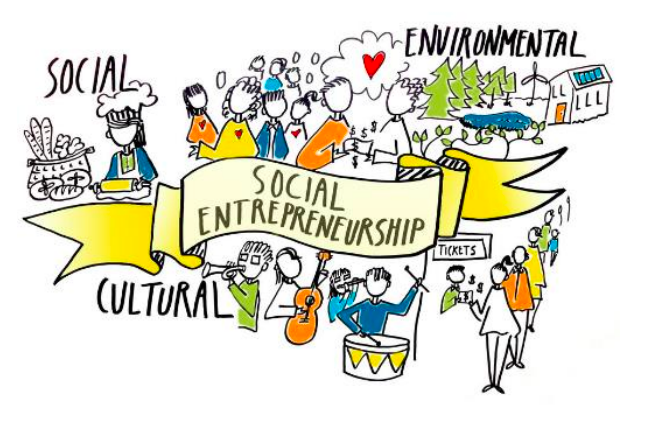
MODULE OUTLINE
CS200 has an interdisciplinary basis and is suitable for students from any discipline. It is designed to help students gain confidence in their own knowledge and creative capabilities and how you could use these to create meaningful projects, jobs and small-scale, not-for-profit enterprises that enhance well-being. This half module combines theory and practice. It is organised around the challenges facing contemporary societies, and requires students to generate small-scale projects or organisations that relate to the real-world needs of local communities, people and the environment. These projects or organisations can have a wide-range of aims and forms. Some might involve, for example, using the arts or sport for health, therapeutic, educational or other purposes linked to enhancing the well-being of people of different ages and backgrounds. Others might focus on community-based conservation, food, transport or energy projects.
The module starts by situating recent policy emphases on social enterprise within the wider historical context of the neoliberal project, and the challenges posed by climate change and environmental degradation. Then we look at case studies of social enterprises, citizens' initiatives and company policies oriented to sustainability: local food, conserving biodiversity, sustainable transport and energy. Next, we discuss the concept, history and practice of social entrepreneurship, as well as ethical debates around different organisational models, and discuss case studies of not-for-profits oriented to social needs. In the later part of the module, we look at how to design, fund, and set up a small-scale project or community interest company. Then you will identify and research a particular niche according to your their interests and design a feasible project proposal or an organisational business plan for a small not-for-profit company. The knowledge, skills and experience you acquire in CS200 will also be valuable in other employment settings, such as large firms, the public sector (especially health and education), and larger NGOs and charities.
This half-module combines a range of teaching and learning methods. Most of the sessions in the first part will be taught on a lecture/class basis, whereas later sessions will be organised on a workshop basis. There will be at least one guest speaker experienced in working in this field. You are expected to attend all sessions, do all the required preparation, and take an active role in class discussions, exercises and giving feedback on presentations.
AIMS
The aims of this module are:
- To give students an understanding of the concept of social entrepreneurs, their different roles and potentials in relation to the needs of local people, communities and the environment.
- To stimulate thinking around the theory and practice of sustainability and how it relates to everyday practices and local community needs.
- To introduce students to the diverse types of small-scale, not-for-profit organisations and some of their strengths and limitations.
- To help students develop and gain confidence in their creative capabilities and ways they might use these in the labour market and to enhance well-being.
- To provide students with skills and experience of working collaboratively, and in project and organisational design.
LEARNING OUTCOMES
- By the end of this module the student should have:
- A good understanding of the topics and ideas that are covered in this module.
- Confidence in using a number of specialised concepts and terms, and in their skills and capabilities.
- The ability to discuss the material covered on the module and to demonstrate this competence through class discussion and assignments.
- An understanding of how to translate ideas into small-scale, real-world projects and organisations.
- Enhanced research, presentation, writing and employability skills.
- Module Supervisor: Jane Hindley
